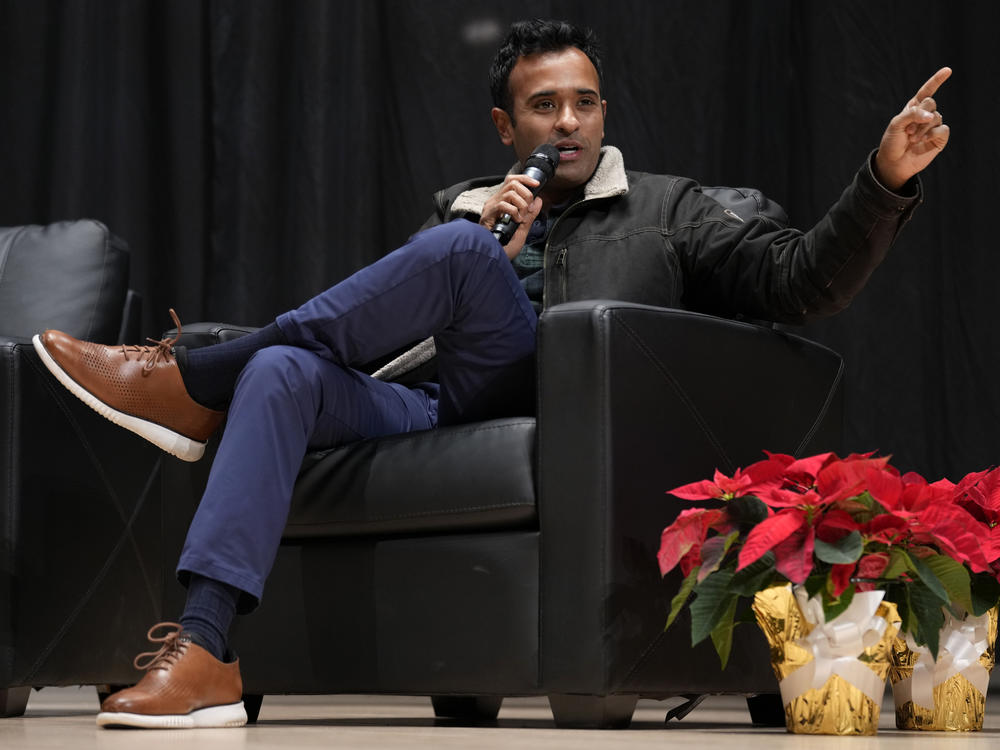Section Branding
Header Content
Vivek Ramaswamy's campaign has slowed TV ad spending ahead of the Iowa caucus
Primary Content
Republican presidential candidate and businessman Vivek Ramaswamy is struggling in the polls ahead of the first primary contest and his campaign says it's shifting gears.
According to data from advertising tracking firm Ad Impact, Ramaswamy has all but halted TV spending. In the first half of December, the campaign spent more than $200,000 on TV ads but has spent practically nothing in the last week.
The Iowa caucus is Jan. 15.
In a statement sent to NPR, a spokesperson for the campaign denied they have completely stopped spending money on TV ads.
"Our spending levels haven't changed—we're just following the data," said campaign spokesperson Tricia McLaughlin. "We are focused on bringing out the voters we've identified—best way to reach them is using addressable advertising, mail, text, live calls and doors to communicate with our voters on Vivek's vision for America, making their plan to caucus and turning them out."
The field of Republican presidential candidates has been shrinking ahead of early primary contests. There have been reports that multiple candidates still in the race – including Florida Gov. Ron DeSantis – are facing struggling campaigns before voters even start casting ballots.
Former President Donald Trump has maintained a sizable lead in the polls in Iowa – and in most early primary states — while Ramaswamy and the rest of the GOP field have struggled to gain significant support among Republican primary voters.
McLaughlin said because polls have "barely changed" in the last several months despite the millions of dollars spent on TV in Iowa, Ramaswamy's campaign says they are hopeful about their new strategy.
"Get ready for a major upset on Jan. 15 and good luck to the political consultants who are reliant on traditional ad spending to line their pockets," she predicted.
Copyright 2023 NPR. To see more, visit https://www.npr.org.

